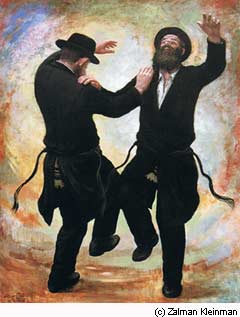 wisdom
wisdom Fools Following God
 Saturday, September 14, 2019 at 12:43PM
Saturday, September 14, 2019 at 12:43PM  One of the smartest guys in history didn’t have a very high opinion of human wisdom. The Apostle Paul uttered the inspired phrase, “the foolishness of God is wiser than man’s wisdom . . .”
One of the smartest guys in history didn’t have a very high opinion of human wisdom. The Apostle Paul uttered the inspired phrase, “the foolishness of God is wiser than man’s wisdom . . .”
So why are we still obsessed with man’s wisdom?
I know I am: in my work as a consultant I read the latest books of leadership and teamwork. I can’t resist articles that promise to reveal “7 Secrets of Lasting Change,” or “How to Get Your Way While People Think They Are Getting Theirs.” And don’t try to tell me you’re not a sucker for this stuff either. Instead of the radically foolish act of following Jesus, most of us hunger for the latest insights from Psychology Today, the Harvard Business Review, or Cosmo.
Yet in chapter after chapter, the story-rich message of scripture lifts up the example of fools following God.
- The “Father of nations” tried to kill his only son.
- God backed a deceitful schemer to carry the promise of blessing to the nations.
- In order to become the prime minister of Egypt, God engineered a career path of slavery and prison.
And we’re not even out of the first book of the Bible:
- Israel’s deliverer and lawgiver was slow of speech and apparently had a temper.
- The man after God’s own heart was an adulterer and murderer.
- To demonstrate God’s love, one prophet married a prostitute.
And when God decided to pay us a personal visit,
- He was smuggled to earth in the womb of teenage girl.
- He avoided all certification and authorization from the authorities.
- Considered his shameful and horrifying death the pinnacle of his mission.
I know: every one of these actions proved successful. But how many of us embrace them as our model for life? We celebrate their successes without celebrating the foolishness that paved the way.
One final example: in my years as a pastor I picked up a graduate degree along the way. I read many books by the learned and the wise among Christianity. Here, at last, I found the wisdom of God, right? Not so much, it turns out. Academics love the lofty, erudite preaching at Mars Hill, even though the scripture describes it as ineffective. The city of Corinth is described again and again in scholarly journals as a “wretched hive of scum and villainy” (to steal a phrase), even though it became the birthplace of one of the largest churches in the first century. I never—not once—read a practical application of Paul’s view of wisdom found in 1 Corinthians 1 & 2 (go ahead and read it, I’ll wait).
What if part of the wood, hay, and stubble destined for destruction is the wisdom of the wise?
It’s been said that God’s Kingdom is an upside-down kingdom, but what if we are the ones standing on our heads? Romans 14:17 describes God’s kingdom as two-thirds relationship and one-third emotion. Where is rationality and the cunning of men?
Do The Teshuva!
 Thursday, July 25, 2019 at 03:52PM
Thursday, July 25, 2019 at 03:52PM  From the Charleston to the Mashed Potato to Flossing, every dance move needs a name; but if you want to do the Teshuva, you’ll need a Rabbi to show you how.
From the Charleston to the Mashed Potato to Flossing, every dance move needs a name; but if you want to do the Teshuva, you’ll need a Rabbi to show you how.The Day the Cows Repented
 Tuesday, July 16, 2019 at 10:12AM
Tuesday, July 16, 2019 at 10:12AM  No details. Just an eight-word prophecy of destruction, delivered by a strange-looking foreigner. A man with ragged clothes and ugly skin walked through the heart of a great city and repeated himself over and over: “Yet forty days and Nineveh will be overthrown.”
No details. Just an eight-word prophecy of destruction, delivered by a strange-looking foreigner. A man with ragged clothes and ugly skin walked through the heart of a great city and repeated himself over and over: “Yet forty days and Nineveh will be overthrown.”
This is the story of a God named Yahweh, a man named Jonah, and a city called Nineveh: a city 600 miles away from Jerusalem, a city known for its wealth, its size—and its barbarity. God sent a nobody (a Jewish prophet) to warn the Assyrian city of Nineveh that destruction was coming. Without advertising in advance, without setting up a diplomatic meeting between representatives of two countries, God’s message was plain and direct: in forty days your capital city is doomed.
And then something remarkable happened. The people of the city listened to the message. Really listened. From the city streets and among the storefront shops a grassroots response grew. People believed the message and took action: they repented. In the ancient world there were protocols for repentance, outward actions that signaled you were turning around. The people of Nineveh quit eating. They took off their work clothes or party clothes and dressed in burlap sacks, rich and poor alike agreed on these signs as a response, “We hear you, God of Israel, and we will change.” Even the king of Nineveh, isolated in his royal palace, became one with his people, fasting and shedding the royal silks. He took the cold ashes from the fireplace and poured them on his head.
Just in case there was someone who had not yet gotten with the program the king sent out a formal notice: “Everybody: repent.” And the king meant everybody: his decree went a step further and demanded that the livestock of the city should join in these acts of repentance. “Stop feeding your animals,” he said, “Let them repent with us.” Can you imagine the noise rising up from the city as from every stall, every pen, and every chicken coup the animals began to complain? Even the lowing of the cattle rose up as a prayer of repentance. It was the day the cows repented. And Yahweh heard. He saw that from great to small, from human to bovine, this group of people was willing to change their ways.
Here’s the thing about God: his pronouncements of judgment are not final; they are invitations to repent. The message delivered by the prophet had started a countdown to destruction, but God could stop the clock—and he did so when he saw the response rise up from the streets and reach the highest levels of government. These people took judgment seriously, and God took them seriously. Crisis, averted; peace, restored; mercy, bestowed.
Here’s the thing about repentance: anyone can do it, apparently even your livestock. You don’t have to be a religious person. You don’t have to be a citizen of a select nation. To anyone willing to change God gives the grace for change. Repentance is the outward sign of an inner willingness.
And here’s another thing about repentance: it’s not about the messenger. One of the most surprising aspects about the Old Testament book of Jonah is that Jonah, the prophet, is the “bad guy” in this story. Even though he hears a message directly from God, he has no intention of delivering it because he thinks the people receiving the message do not deserve God’s mercy (check out Jonah 4:2 for the interpretive key to the entire book). Jonah tries to get as far away from Nineveh as he can—but he’s overruled by God (and an enormous fish). Jonah finally delivers the message. You can imagine the begrudging, snarling tone of voice as Jonah walks through the massive city for three days. The people respond, but he’s livid when the people of Nineveh repent. He cares more about having a shady hillside perch so he can watch the fire and brimstone fall. Even though the messenger is filled with hatred for these people, they receive the message. Even though the messenger delivers the message in the most perfunctory way, they receive the message. Even though the messenger is rooting for their own destruction, they receive the message. Wouldn’t it be a tragedy for you or me if we let someone else get in the way of our repentance?
But that would never happen in our day. It would never happen to you or me. It only happens in old Bible stories, right? Right?
Does Leadership Have To Be Lonely?
 Friday, May 31, 2019 at 06:21PM
Friday, May 31, 2019 at 06:21PM  In preparing for a meeting among pastors, a friend of mine asked me to reflect on the meaning of friendship for a church leader (but really: any leader). I sketched out an answer, probably more than he was looking for, and I share it with you all here. What is your experience at the intersection of “leadership” and “friendship?”
In preparing for a meeting among pastors, a friend of mine asked me to reflect on the meaning of friendship for a church leader (but really: any leader). I sketched out an answer, probably more than he was looking for, and I share it with you all here. What is your experience at the intersection of “leadership” and “friendship?”
What did friendship mean to me during my years as a pastor?
I’d like to provide three types of answers to this question: what was going on inside of me during those years, how my friends helped my work as a pastor, and a brief mention of the different kinds of friends I had.
What was going on inside of me during my pastoral years:
I was guarded and private, and it wasn’t healthy. The way I’m wired I tend to process things internally, without conversation, except the conversation in my head—and sometimes that’s Crazy Town. I believed that by keeping my thoughts to myself I was protecting my image, my reputation, and my employment. What I was really doing was cutting myself off from one of the ways the Spirit wanted to speak to me. Here is a trustworthy saying: God speaks through other people. Give other people room to speak.
I had a distrust of people new to the church, which I think is wise: I never gave ministry responsibilities to someone until a person had been with the church for six months or more. But I also had a fear of more established people in the church, and that’s unwise. I wanted them to “do ministry,” but rarely shared with them what was going on inside of me. We are not meant to do our work alone.
How my friends helped my work as a pastor:
I never knew the greatest help I had—people who prayed for me, forgave me, and were patient with me. These are hidden things that only become known years later, but they are very real things: how else could my friends help a guy who was a closed off as me? My more charismatic friends would not only pray for me, they would listen to the Lord’s voice and humbly deliver to me what they heard. They didn’t try to enforce what they heard (you know, “God told me to tell you . . . “) but always offered what they had, much like a UPS delivery driver (“Here’s the package, I hope it helps: see ya’.”). In retrospect, I wished I would have actively asked for their opinions more. Of course, there were other more visible helps as well. Encouragement—especially encouragement that is specific—is a great help.
The different kinds of friends I had:
I had “old friends,” people who had known me for years, and had taken the effort to stay in contact, even though we were distributed all of the country. These guys were people with no interest in the direction of the church, or no desire to be given position: they only cared about me. That’s valuable!
Other friends are those would’ve been my friends whether I was a pastor or not. Some were in the church; some were not. You can’t “talk shop” all the time: Even with friends inside the church is was great to have people to talk with about music, movies, and books. Good friends allow you to have a life outside of the church—and provide the opportunity to do so.
Finally, my biggest single regret is not befriending my spouse more. In a misguided attempt to “protect” my spouse from church crap, I closed off that portion of my thoughts to her. She sensed it, and it was painful to her. It was a bad move because no human was more on my side, and I chose to keep a big part of my life (my thoughts and feelings) separate from her.
The Hard Work of Making Inspiration Plain
 Thursday, April 18, 2019 at 08:27AM
Thursday, April 18, 2019 at 08:27AM  Storytellers, poets, songwriters, historians, correspondents, legal scholars, apocalyptic dreamers. Perhaps it’s blindingly obvious: the books of the Bible were written by . . . writers. The Holy Spirit breathed upon each one, opened their hearts and ears and eyes to the spiritual realities around them. But they were still writers. They struggled to capture the inspired moment of clarity and present a finished work capable of blessing generations to come.
Storytellers, poets, songwriters, historians, correspondents, legal scholars, apocalyptic dreamers. Perhaps it’s blindingly obvious: the books of the Bible were written by . . . writers. The Holy Spirit breathed upon each one, opened their hearts and ears and eyes to the spiritual realities around them. But they were still writers. They struggled to capture the inspired moment of clarity and present a finished work capable of blessing generations to come.
Peter described it this way: “the prophets, who spoke of the grace that was to come to you, searched intently and with the greatest care, trying to find out the time and circumstances to which the Spirit of Christ in them was pointing when he predicted the sufferings of the Messiah and the glories that would follow.” (1 Peter 1:10-11) Even though the Spirit was their guide, they searched intently. It was an inspired collaboration.
The prophet Habakkuk (that discontent whining wondering man who in turn inspired the Apostle Paul) recorded the process of capturing a flash of divine inspiration. Although the scripture is complete, inspiration still flashes today. Since we carry the inspired good news, Habakkuk’s words are a lesson for us as well:
"I will stand at my watch and station myself on the ramparts; I will look to see what he will say to me, and what answer I am to give to this complaint. Then the Lord replied: Write down the revelation and make it plain on tablets so that a herald may run with it. For the revelation awaits an appointed time; it speaks of the end and will not prove false. Though it linger, wait for it; it will certainly come and will not delay." (Habakkuk 2:1-3)
Here are four observations capable of making us partners with the Spirit’s inspiration:
“I will stand at my watch and station myself on the ramparts . . .” We ourselves create the space to receive revelation. Habakkuk purposefully took up the position of watchman: he was alone and vigilant, eager and confident that the Lord would speak to him. He was not disappointed; he had prepared himself for when the moment came. When we create space for the Spirit to come, he willingly accepts the invitation.
“Make it plain . . . “ God favors clarity. Beauty and art flow from inspiration, but we must make it plain. Our part is the clear expression of what he illuminates. There is a time to scatter rose petals among our words, but first comes content. Our words should carry a meaning clear enough that others may run with the message.
“The revelation awaits an appointed time . . .” Even revelation requires timing. Strangely, the appointed time is seldom in the heat of battle. When social debate rages back and forth in public media we are exposed to the heat of passion, but not much light. The prophets spoke to their day, but the prophetic message carried eternal weight. Neither human emotion nor intellect equal divine revelation; it comes only from God, and it requires his timing.
“Though it linger, wait for it; it will certainly come . . .” That's right: wait for it. Habakkuk stationed himself. He also waited. In the rush to say something important we often miss the opportunity to hear something eternal. Waiting is the discipline of writers who speak to generations. You can speak to the moment or you can speak to the ages; you can rarely do both.
I believe in the inspiration of the scripture, but I don’t believe the Holy Spirit used robots to mouth his words. We have a role to play, a role that compliments the word of the Spirit. Habakkuk shows us how it’s done.

